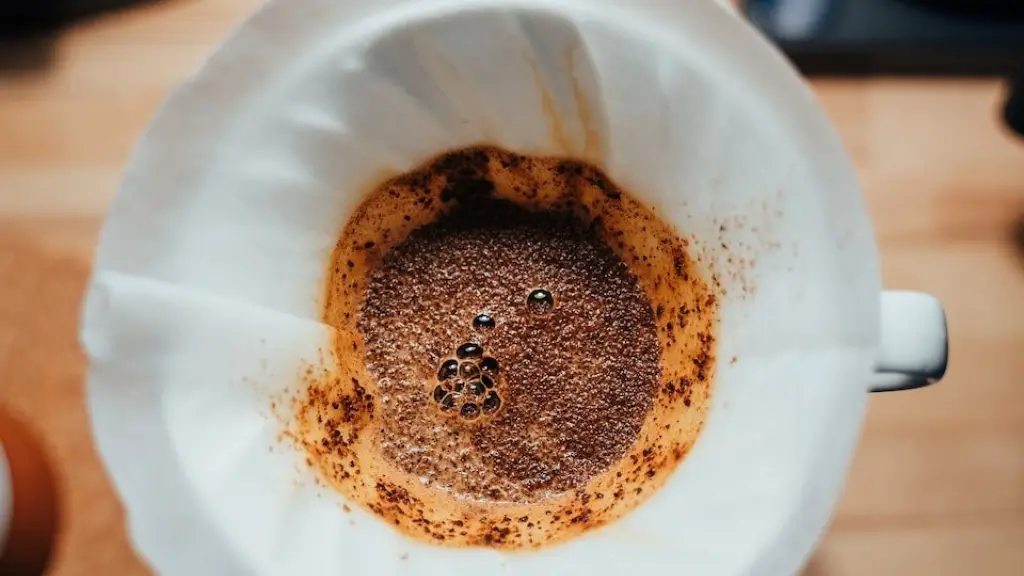Overview
It’s no secret that coffee is a popular beverage worldwide and many people are wondering if drinking coffee daily is safe and healthy. Doctors around the world have been debating this question, with some claiming that it may have some health benefits, while others believe that coffee is unhealthy and can cause kidney damage and other health risks. There is also the question of how much coffee is too much – does drinking just one cup of coffee a day make a difference to overall health? In this article, we’ll explore these questions and provide some background information, relevant data and perspectives from experts to address the question of whether it is okay to drink coffee daily.
The Effects of Caffeine
Caffeine is a stimulant found in coffee, tea, soft drinks and energy drinks, and it has an effect on the central nervous system. Caffeine stimulates the release of adrenaline, which can increase alertness and improve concentration, focus and physical performance. However, too much caffeine can lead to anxiousness, irritability, insomnia and other side effects. Therefore, it is important to be aware of how much caffeine you are consuming and to choose a coffee with a lower caffeine content, such as decaf, if necessary.
Health Benefits
There is evidence to suggest that drinking coffee may have some health benefits. Studies have shown that drinking coffee may reduce the risk of developing certain types of cancer, such as prostate cancer, and may also boost the immune system. Furthermore, coffee may also help to reduce the risk of stroke and type 2 diabetes. However, these benefits have only been observed in moderate amounts, and it is recommended that coffee intake be limited to no more than 4 cups per day.
Risks and Side Effects
In addition to the benefits of drinking coffee, there are some risks and side effects associated with drinking too much coffee. For example, too much caffeine can cause anxiety, irritability, insomnia and rapid heartbeat. Furthermore, some studies have suggested that excessive coffee consumption may lead to kidney damage and other health risks. Therefore, it is important to be aware of your daily caffeine intake and to limit your coffee intake to no more than 4 cups per day.
Experts Perspectives
Many experts believe that it is safe to drink coffee daily as long as it is kept to a moderate amount. According to American Heart Association dietitian, Patricia Bannan, “It is safe to have one cup of coffee per day. For people who are sensitive to caffeine, it is best to stick to decaffeinated coffee, and for those who are pregnant it is best to limit coffee to one cup a day or less”. Similarly, registered dietitian Sharon Zarabi stated that “Enjoying a cup of coffee in moderation is perfectly safe. For most healthy adults, up to 400mg of caffeine a day is perfectly safe and may even provide some health benefits”.
Analysis and Insights
Overall, it appears that drinking one cup of coffee a day may be safe and even beneficial for most healthy adults. However, it is important to be aware of your daily caffeine intake and to choose a coffee with a lower caffeine content or decaf if necessary. Furthermore, it is important to be aware of other health risks associated with excessive coffee consumption and to limit your coffee intake to no more than 4 cups per day.
Relationship to other Food and Drinks
Coffee has been shown to be beneficial when consumed in moderation, but it is also important to consider other foods and drinks that contain caffeine. For example, energy drinks may have up to four times as much caffeine as a cup of coffee and should be avoided. Regular soda and tea can also contain caffeine, so it is important to be aware of your total caffeine intake and to stick to no more than 400mg per day.
Safety for Children and Pregnant Women
Coffee can be beneficial for healthy adults, but it is important to be aware of how it may affect children and pregnant women. According to clinicians, children should not be given coffee or other forms of caffeinated beverages as it can interfere with their growth and development. Similarly, pregnant or breastfeeding women should avoid coffee as it can cause a number of health risks, including miscarriages and stillbirths.
Herbal Alternatives
In addition to coffee, there are some herbal alternatives which may provide an energy boost without the caffeine. For example, some herbal teas have been known to provide energy and focus without the caffeine and may be a good choice for those looking for an alternative to coffee. Other herbs such as guarana, ginseng, and green tea can provide a boost of energy without the caffeine, making them a good choice for those who are looking for an alternative to coffee.
Lifestyle Considerations
It is important to be aware of how drinking coffee and other caffeinated beverages may affect your lifestyle. For example, drinking too much coffee may lead to restlessness, irritability and difficulty sleeping. Furthermore, coffee can interfere with certain medications and should be avoided if you are taking certain medications. It is also important to be aware of how coffee may affect your mood or mental health and to limit your intake if necessary.


